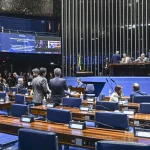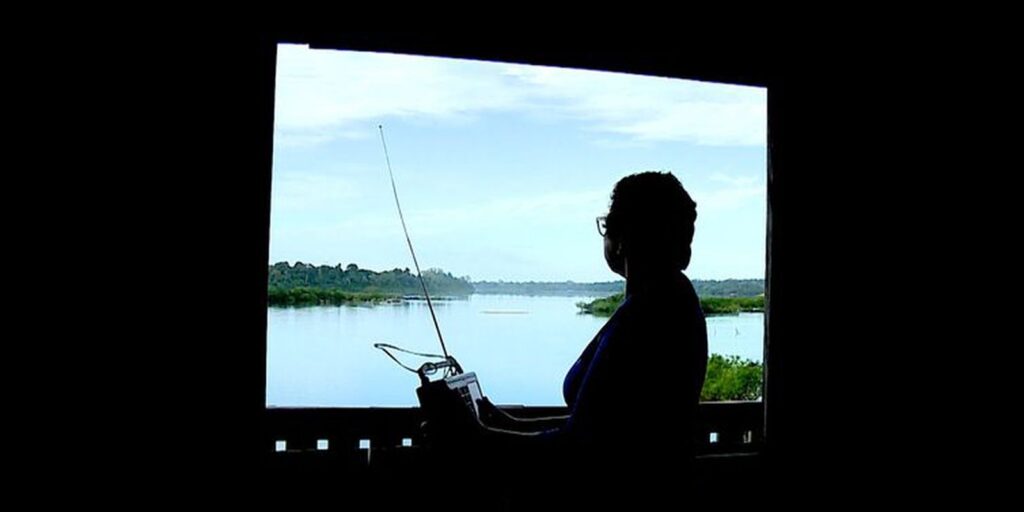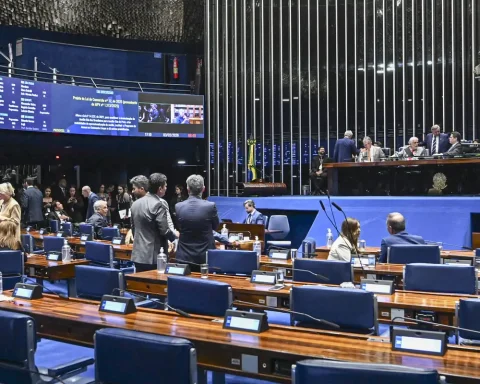Last Thursday, August 18, the Regional Delegation of Los Lagos of the Comptroller General of the Republic issued an opinion that dismissed the complaint of a private person from Puerto Varas against the Livestock Agricultural Service (SAG), who requested to annul the act inspection No. 1005557, prepared by an inspector of said body. With this pronouncement of the Comptroller’s Office, it is confirmed that the SAG has all the legal powers to comply with the regulations of Decree Law 3,516, published in 1980, and that it is related to the use and distribution of the plots of pleasure. It is a legal instrument to which real estate projects in rural properties must adhere – and according to some actors, such as the Fundación Defendamos la Ciudad – whose provisions have suffered constant violations in these four decades, in relation to illegal subdivisions to build homes in rustic properties of more than 0.5 hectares.
In relation to this specific case, the national director(s) of the SAG, Andrea Collao, explains that “Fundo Libertad was subdivided through Decree Law No. 3,516, of 1980, in accordance with a subdivision plan and certificate issued by the SAG, which in its text indicates among other aspects: “…This certificate does not signify authorization of change of land use, nor validation of the domain, demarcation or georeference background informed by the applicant.…”. In this context, the Comptroller’s Office -after an analysis of the regulations- reaffirms that the Agricultural and Livestock Service has broad powers to apply and supervise compliance with the legal and regulatory norms on defense of the soil and its agricultural use, and land authorization, this by virtue of article 3 of Law 18,755; being able then to influence in qualifying if the use that is being given to the land corresponds or not to an agricultural use”.
This is a ruling that is welcomed by the Ministry of Agriculture, which has ordered the suspension throughout the country of subdivisions on agricultural land that do not comply with the provisions of this old decree. In this regard, the head of the portfolio, Esteban Valenzuela, pointed out that “by the way, we are pleased with the opinion of the Comptroller of Los Lagos, because this 1980 decree explicitly establishes that a parcelling of a rustic nature for agricultural purposes does not correspond to urban development projects – which are large-scale urban subdivisions, which are contrary to the spirit of this decree – and that is categorical”.
But the head of Agriculture goes further and believes that the other actors involved in these subdivisions that seek to appear parceled out should be considered. In that sense, Valenzuela believes that the Ministry of Public Works (MOP) should be consulted if there are projected rural roads and if there is sufficient drinking water in the areas where these subdivisions are to be made, because in his opinion, there is a great criticism from the Association of Rural Municipalities and the national rural drinking water systems, for how they have been generating individual wells, which affect the water security of the local communities themselves. In addition, the minister adds that the National Forestry Corporation (Conaf) should be asked about the other historic ruling of the National Comptroller’s Office itself, which establishes that the Native Forest Law prevails over other legislation, and therefore the destruction of the forest cannot be allowed. native forest.
It was precisely last July when the Government showed a more radical position in this regard, with the publication of an instruction from the Ministry of Agriculture, in which it requested the National Agricultural and Livestock Service (SAG) to suspend the certification of the subdivision of rural properties that could “mean a threat to the agro-productive systems, the ecosystem and the socio-ecological balance of the localities in which they are located”. A decision that had a quick response from the business sector, with the emergence of Chile Rural AG, a guild that brings together some 50 companies in the field of project developers, subdivisions and plots.
From that organization, they say they value the opinion of the Comptroller’s Office in the Los Lagos region, but they consider the actions of the government authorities to be “illegal” through the publication of these instructions. The lawyer and legal adviser of Chile Rural, Felipe Riesco, said that “the opinion does not cause us any surprise, because it establishes something that we have maintained from the beginning: that although the SAG, the municipalities and the Ministry of Housing and Urbanism ( Minvu) have oversight powers – which we have never discussed – the same opinion maintains that the oversight gives rise to those presenting a complaint to the Local Police Court, who ultimately determines whether Decree Law 3,516 has been complied with or not. In that sense, it is consistent with what we have permanently maintained and what we maintain in our representation in the Comptroller’s Office, and in the opinions that the Comptroller’s Office has previously issued on this matter”.
But since the Livestock Agricultural Service (SAG) announced the suspension or rejection of subdivisions of rural properties, the president of the Chile Rural union association, Tomás Prado, accompanied by his legal adviser, former prosecutor Carlos Gajardo, requested the Comptroller’s statement. The presentation made establishes that, although the SAG has supervisory powers, said body cannot determine non-compliance with this sectoral regulation, because this provision of the law, as emphasized by its legal advisor, corresponds to the Police Courts Local.
In this regard, Felipe Riesco adds that these oversight powers are former post– that is, once the subdivision has been generated-, and not former before, as the Ministry of Agriculture and the SAG claim, because in their opinion, the subdivision by itself does not generate a change in land use. “This is a matter of legality, and legality is not tradable. Either you act in accordance with the Law, or you act against the Law, but it does not depend on an agreement between the developers or the parceleros with the Government, but in the end what you have to do is comply with the laws. And I understand that the Minister of Agriculture or the SAG may not like a Law, but as long as that Law is in force and the legislator does not modify it, they cannot claim the power to determine its compliance, which is very serious in a State of Law”, pointed out the lawyer.
A controversial instruction
The truth is that the increase in recent years in requests for the subdivision of rural properties under the old Decree Law that allows them to be divided into extensions of no less than half a hectare, was one of the reasons that motivated the Ministry of Agriculture to officiate at the SAG to suspend the subdivision application processes, to the extent that it presumed that they point to a change from rural to residential use of the lots, violating articles 55 and 56 of the General Law of Urban Planning and Construction. A measure that for some is “illegal”, while for others, it is an advance in relation to a problem that has increased in recent years, with the growing interest in living in rural areas. In fact, the Government seeks to stop the uncoordinated permission of mega-loteos that have triggered 10,000 to 20,000 subdivision files in recent years.
But the Minister of Agriculture, Esteban Valenzuela, rules out that it is a subdivision ban, “rather, it is an instruction to comply with the principle of coordination between public entities, which obliges the Ministry of Agriculture and the SAG, seeking to reiterate something that It is obvious: that the Ministry is obliged to ask the Urban Development Division of the respective Housing Seremi, if there are regulatory plans, inter-communal plans, regional plans, coastline plans and conservation plans for nature sanctuaries, in those mega projects that look like subdivisions, but are subdivisions (…) It has been a sign, understanding that since we issued this coordination instruction, around 700 permits have been approved for rural subdivisions – which are agricultural properties, divided into two or three larger properties – which imply being consistent with the spirit of regular legislation”.
For its part, from the Fundación Defendamos la Ciudad, its president, urban planner Patricio Herman, pointed out that “fortunately, this government took the bull by the horns and instructed the SAG to issue a circular to scratch the field. Now, it is not arrive and subdivide, but now the authorities are acting more firmly (…) In addition, articles 2 and 3 of Decree Law 3,516 indicate that the construction of real estate projects or homes on these rustic plots of 0, 5 hectares. It even gives powers to the State Defense Council to initiate actions in order to establish the nullity of these administrative acts. Never, in these more than 40 years, has the State Defense Council assumed that role, possibly because no one has ever denounced it.”
For the Rural Chile Trade Association, it is a “flagrant” situation, so they trust that the Comptroller General of the Republic will make a statement about it. In fact, they refer to a precedent in this matter, when in the previous Government, the SAG instructed that a series of requirements be incorporated for the subdivisions, which included the presentation of mortgage certificates and liens, and a group of people resorted to Office of the Comptroller, who finally ordered that instruction be annulled, because it contemplated procedures and requirements that were not established by law.
From the business association that has former prosecutor Carlos Gajardo as legal advisor, they believe that this action by the Ministry of Agriculture and the direction of the SAG is “openly illegal and unconstitutional”, because they believe that the duty of coordination is not exercised through instructions, and less by means of the interpretation of the Law, exercising a power that they do not have, in addition to establishing requirements for a procedure, which, they maintain, is a power reserved to the legislator. In addition, they accuse state agencies of attributing a power exclusive to the Courts of Justice, which is to exercise jurisdictional functions, reiterating that Decree Law 3,516 explicitly states that it will be the Local Police Courts that will determine a possible breach of the regulations. legal, and in his opinion, no authority can claim that power. Now, the last word has the Comptroller General of the Republic.
















